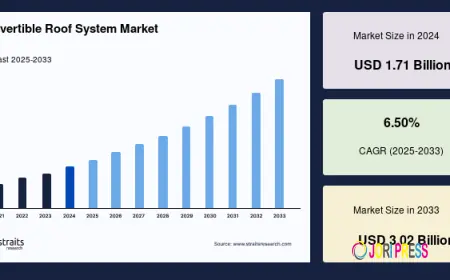The Importance of Data Privacy: Digital Marketing Insights
Data privacy isn’t just a legal issue — it’s a marketing imperative. In a world where consumer trust is as valuable as clicks and conversions, Digital Marketing Insights must be gathered and applied with care.

Introduction
In today’s digital world, data is currency — but not all currency comes without risk. As consumers become more aware of how their information is collected and used, brands must walk a fine line between leveraging data and protecting privacy. Understanding the importance of data privacy is now a non-negotiable part of using Digital Marketing Insights effectively.
Understanding Data Privacy in a Digital World
So, what is data privacy? At its core, it refers to the right of individuals to control how their personal information is collected, stored, and shared. From your email address to your location and online habits, everything you do leaves a digital footprint.
Marketers rely on this data to build campaigns, segment audiences, and personalize content — but they must now do so ethically and transparently.
How Marketers Collect User Data
Let’s be real — the moment you click “Accept All Cookies,” your behavior is being tracked. Marketers use:
-
Cookies
-
Heatmaps
-
Signup forms
-
Purchase history
-
Device and location tracking
And while this helps optimize campaigns, Digital Marketing Insights must be used responsibly, especially as privacy regulations tighten.
Digital Marketing Insights & Data Dependency
Great marketing starts with great data. Digital Marketing Insights allow brands to:
-
Identify what users like
-
Personalize offers
-
Retarget previous site visitors
-
Optimize campaign timing
But here’s the catch — collecting data without transparency can backfire. Privacy isn't just a legal obligation; it's a trust factor.
The Privacy-Performance Balance
Want to personalize without creeping people out? That’s the privacy-performance paradox. If you overstep, you lose credibility. If you under-collect, your campaigns become generic.
The secret is in balancing Digital Marketing Insights with ethical practices — using what’s necessary, and being clear about it.
Global Data Protection Laws You Need to Know
Marketers can’t afford to ignore laws like:
-
GDPR – Requires consent and gives users rights over their data (EU)
-
CCPA – Gives California residents control over their info
-
PDPA – Southeast Asia’s growing privacy framework
Each one influences how you collect and use Digital Marketing Insights, especially when running global campaigns.
The Impact of Privacy Changes on Marketing Strategies
Big tech changes have rocked the digital marketing world. From Apple’s Mail Privacy Protection to Google’s plan to phase out third-party cookies, marketers must rethink how they gather insights.
What’s the solution? Shift focus from third-party to first-party data, and build stronger direct customer relationships.
Why Consumers Care About Data Privacy
Customers aren’t just numbers — they’re people with real concerns:
-
60% worry about how their data is used
-
80% abandon websites that feel intrusive
-
Data breaches increase fear of identity theft
If your brand isn't taking privacy seriously, expect customers to jump ship — no matter how great your ads are.
Digital Marketing Insights on Building Trust
Want to keep people coming back? Start with trust.
-
Be transparent – Tell users what you’re collecting and why.
-
Offer opt-ins – Let them choose how much they want to share.
-
Respect boundaries – Don’t follow them across the web like a shadow.
Brands that implement privacy-centered Digital Marketing Insights tend to have higher customer retention and better long-term loyalty.
First-Party Data is the Future
With the end of third-party cookies, the spotlight is on first-party data — the info users share directly with your brand.
Think:
-
Email signups
-
Surveys
-
Purchase history
-
App activity
Use Digital Marketing Insights from this data to build more meaningful connections, without breaching trust.
Tools That Support Privacy-First Marketing
Need help managing compliance and privacy?
Try:
-
Consent management platforms (CMPs)
-
Privacy-centric analytics like Matomo
-
Customer data platforms (CDPs) with privacy features
These tools help you extract Digital Marketing Insights without sacrificing integrity or facing fines.
Key Digital Marketing Insights for the Future
Here’s what marketers must know going forward:
-
Privacy is not optional — it's expected
-
Consumers want transparency — and will reward brands that provide it
-
First-party strategies will win — especially with upcoming browser changes
-
Data ethics is a brand value — not just a checkbox
Smart marketers will bake privacy into their strategy, not bolt it on after the fact.
Educating Your Team on Ethical Data Practices
Everyone in your marketing team — from social media managers to email marketers — should understand ethical data practices. Host training sessions, build internal guidelines, and foster a culture of respect toward user data.
Digital Marketing Insights should empower your team, not expose your brand to risk.
Conclusion
Data privacy isn’t just a legal issue — it’s a marketing imperative. In a world where consumer trust is as valuable as clicks and conversions, Digital Marketing Insights must be gathered and applied with care.
By embracing privacy-first strategies, brands will not only comply with global laws but also win the loyalty of their audiences. Respecting user privacy today means building a sustainable digital marketing future tomorrow.
FAQs
1. What is the difference between data privacy and data security?
Data privacy refers to the rights and choices of individuals regarding their data. Data security protects that data from breaches and unauthorized access.
2. How do privacy laws impact digital ad campaigns?
They regulate how you collect, store, and use personal data, often requiring user consent and clear disclosures.
3. What are some first-party data examples?
Email addresses collected via opt-ins, purchase behavior, and survey responses.
4. Are cookies going away completely?
Third-party cookies are being phased out, but first-party cookies will still play a major role.
5. How can small businesses manage privacy effectively?
Use tools like CMPs, create clear privacy policies, and educate your team on best practices.
What's Your Reaction?
 Like
0
Like
0
 Dislike
0
Dislike
0
 Love
0
Love
0
 Funny
0
Funny
0
 Angry
0
Angry
0
 Sad
0
Sad
0
 Wow
0
Wow
0

















































